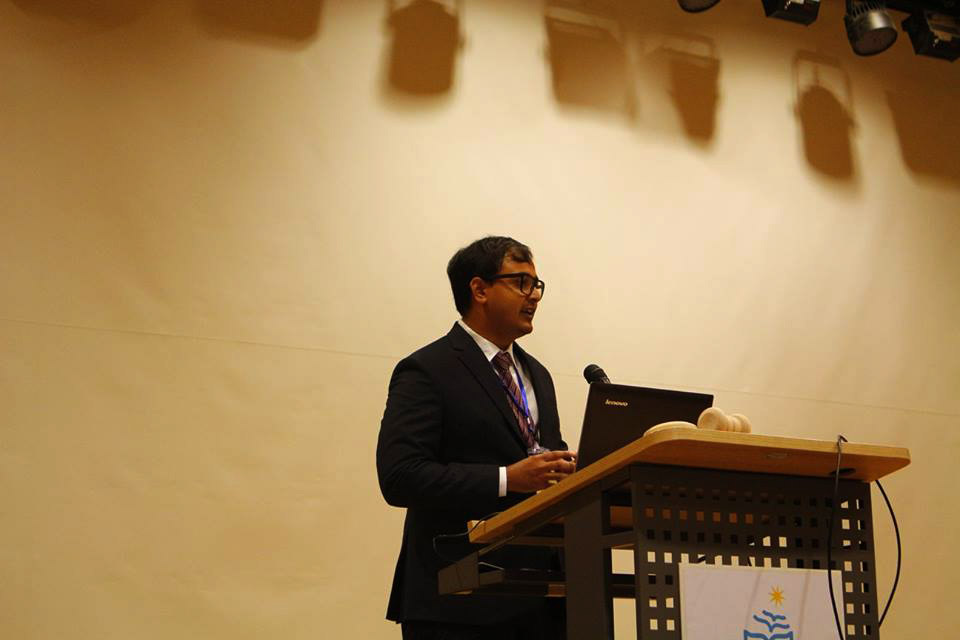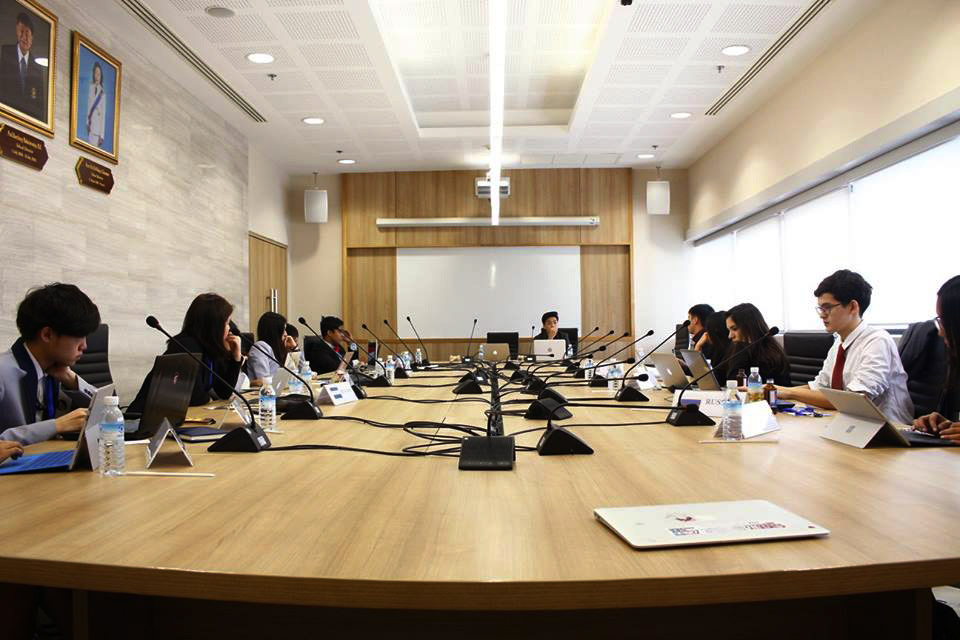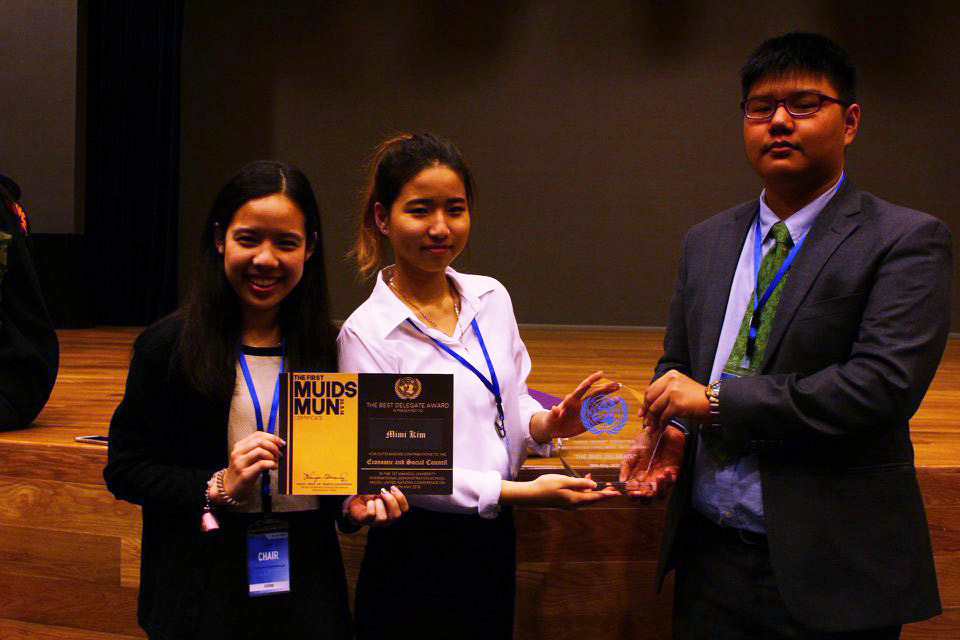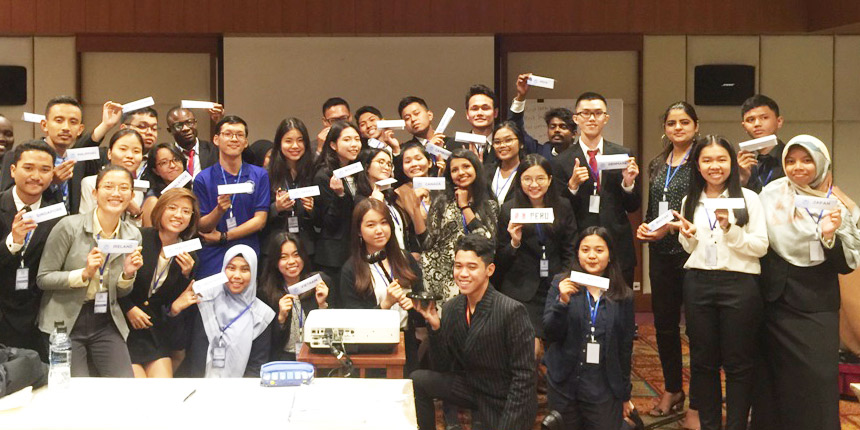No one succeeds alone, a fact MUIDS alumnus Pin-anong Weesapen learned through Model United Nations, a program that lets students represent different countries, debate global challenges, and find solutions to them.
“I remember spending my childhood engaging in politics,” Pin recounted. “When I was 10, I even wrote a letter to the then prime minister about the construction of a nuclear power plant in my hometown. At first I wanted to be a politician, but soon I realized that If I am to help people, why would it matter what nationality they hold? Why only work for the betterment of Thailand? Why not work for the betterment of mankind as well? That’s when I became interested in Model United Nations. “

Finding a Mentor
Pin further explored her interest by participating in MUIDS’ Model United Nations club. Her advisor, Mr. Taskinul Haque, discovered his fascination with global affairs at a similar age.
“I did MUN in high school, not because I initially had an interest in global issues, but because I wanted to become a more well-rounded person. Doing Model UN required me to research other countries interests as well as their history. Over time I realized that in my History class certain countries and issues were de-empathized, or weren’t even taught at all. That realization didn’t just give me a greater awareness of global issues, but also a profound sense of empathy towards other people. I want my students to have that same experience.”
With Mr. Haque’s help, Pin and other students attended several M.U.N. conferences throughout the Bangkok area.
“I make sure my students do a lot of research before each conference. It helps them develop their arguments so that they can be more effective debaters.”
When attending an M.U.N. event, students participate in different committees and debate different solutions to global challenges. Later, they submit a resolution to their committees for further voting. All conferences are modeled after the real United Nations.
“It’s good for students to have their opinions challenged,” Mr. Haque added. “It forces them to listen to other points of view and think more deeply about their own beliefs. That’s when they learn how to grow as a person.”
A Conference of Their Own

Inspiration struck Pin and her fellow MUIDS students after one conference. “It can take a long time to get back to MUIDS after an event. We would all end up talking about which delegates from which schools performed well, how each committee went, how the conference was arranged as a whole. At a certain point all of us wanted to change our status from the ones being inspired to the ones inspiring others. We knew then that we wanted was to have our own conference.”
Making that happen was far more difficult than they imagined.
“We asked MUIDS students to volunteer to help us prepare and run the conference in the hopes of recruiting more MUN members. We also had to figure out what we needed from the school’s administrators and support staff.”
“At first, less than fifteen students signed up to attend the conference. Then several schools that had planned to attend dropped out. We had no choice but to extend our deadlines and recruit new delegates from other schools.”
“We were all stressed because we knew that the outcome of the event wouldn’t just reflect on the club, but perhaps MUIDS as whole,The hardest part for me was pretending to be confident in front of my team, even when I felt like it was almost impossible for us to succeed.”
Learning to Work as a Team

“I asked each of my team members (Pear, Opal, Mild, Pea, and Sam) to lead a department, manage volunteers, and make sure that work was done on time. We met before school almost every Wednesday. My team members did not have to come, but they always did, making crucial decisions and contributing ideas along the way. Even after we graduated, we went to school to prepare for the conference, in our uniforms. It was not easy, for me and for them, but our passion for the event kept us going. ”
The conference exceeded everyone’s expectations. Pin and her team even recruited a prominent speaker, Dr. Gothom Arya, one of the founders of the first human rights organization in Thailand, the Union for Civil Society.
“Overall, the conference was a success,” Mr. Haque professed. “Dr. Arya gave a great speech about how to create equality in the modern world. Competitive schools such as N.I.S.T., Triam Udom, Yotinburara, Rumradee, and others attended. All of the students debated complex issues such as illicit small arms trade in Latin America, the humanitarian crisis in Yemen, data privacy, and several others. Our students competed well and helped each committee write meaningful resolutions. We made certain students received meaningful trophies for their efforts.”
The Dream Grows

Pin’s passion for Model U.N. didn’t end after she graduated. While currently studying International Relations and Global Affairs at M.U.I.C., she recently attended the “International Leaders Model United Nations” conference. Representing Peru, she won the award for “best delegate” after helping to pass a resolution addressing Venezuela’s current financial crisis.
“Right now, I am in the process of setting up a Model United Nations club at MUIC. I also plan to collaborate with Thammasat and Chulalongkorn University’s Model U.N. clubs.”
“I think I’ll keep doing Model United Nations because it helps me see the world as a more dynamic place. As I negotiate on behalf of more and more countries, I gain new ways to see the world. It makes it easier for me to understand, or at least try to understand, people who have opinions different from my own. It makes me believe that it is not our duty to judge other people, but to seek out common goals that will allow us to work together in spite of our differences.”
